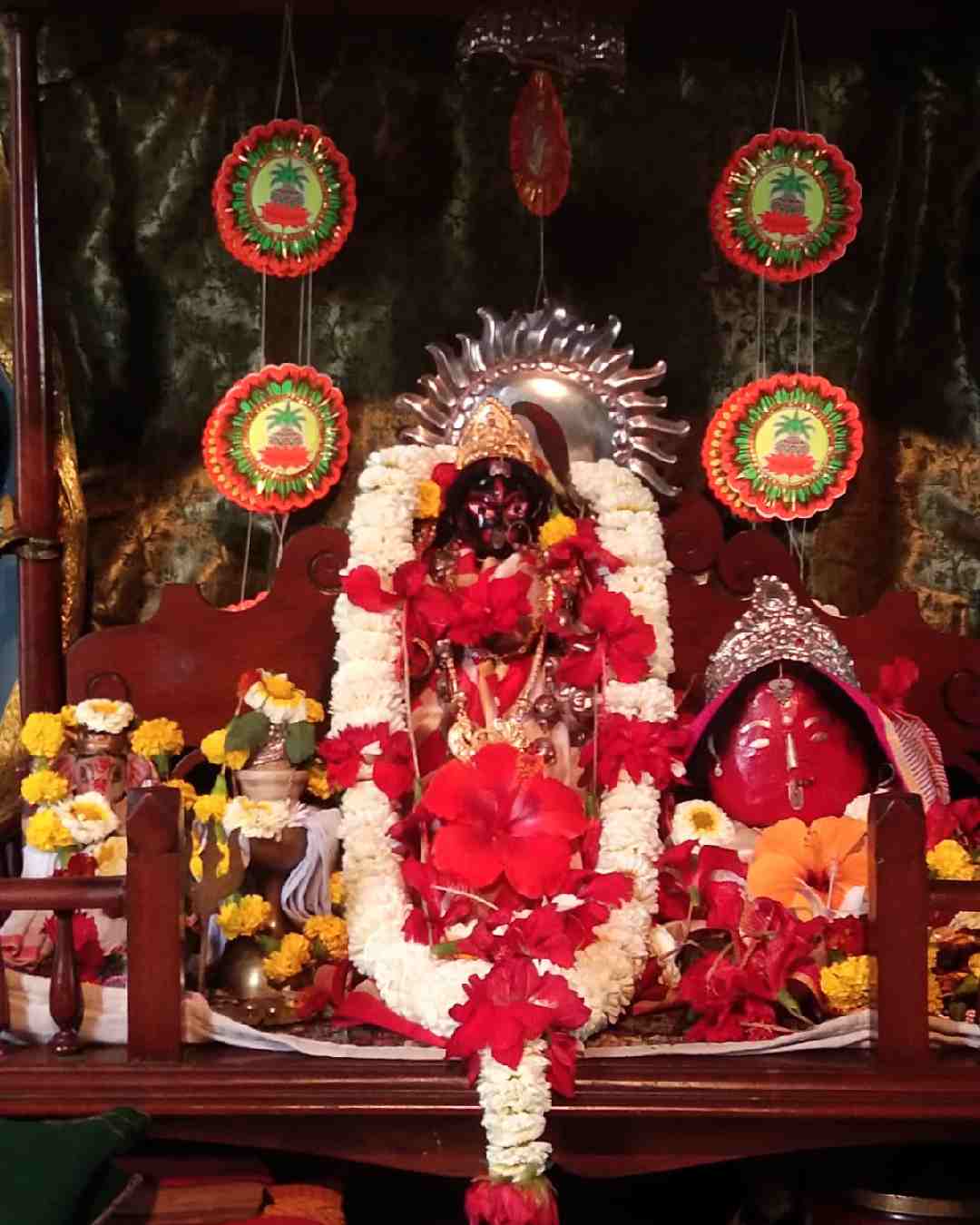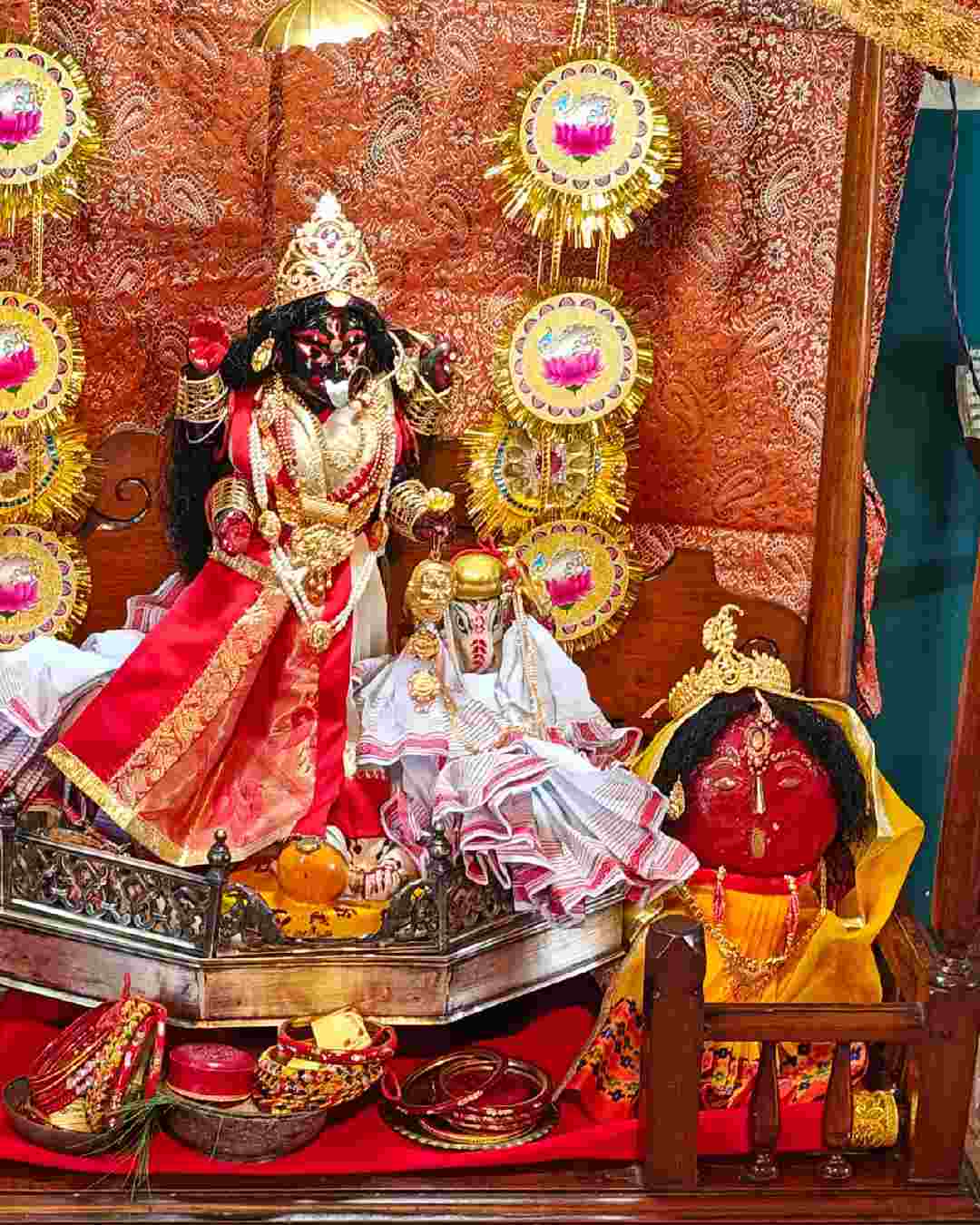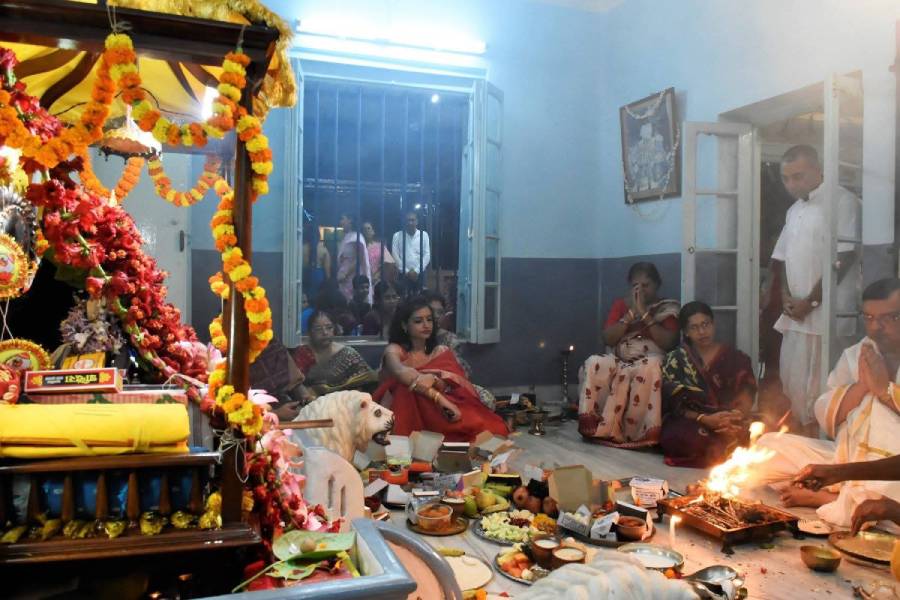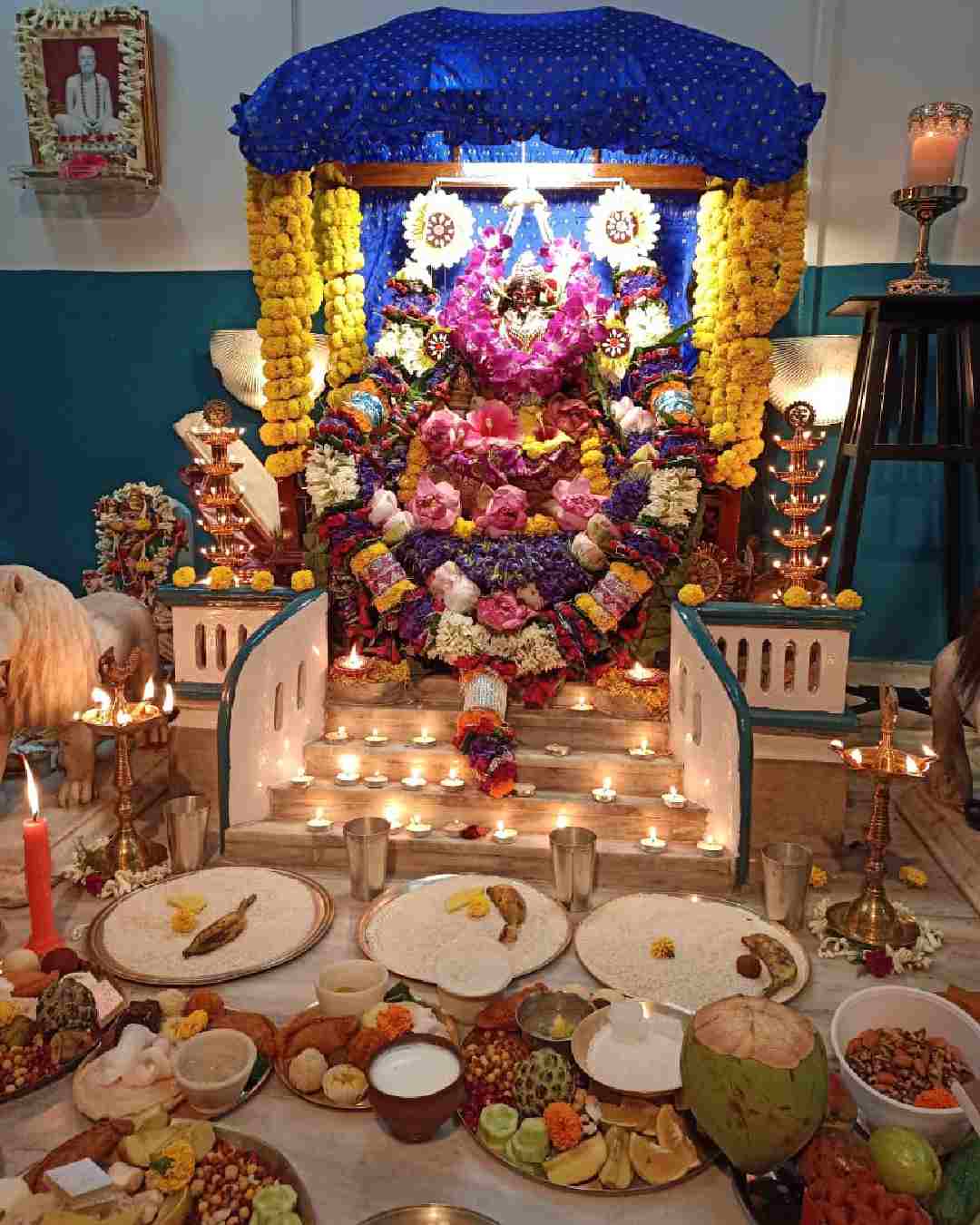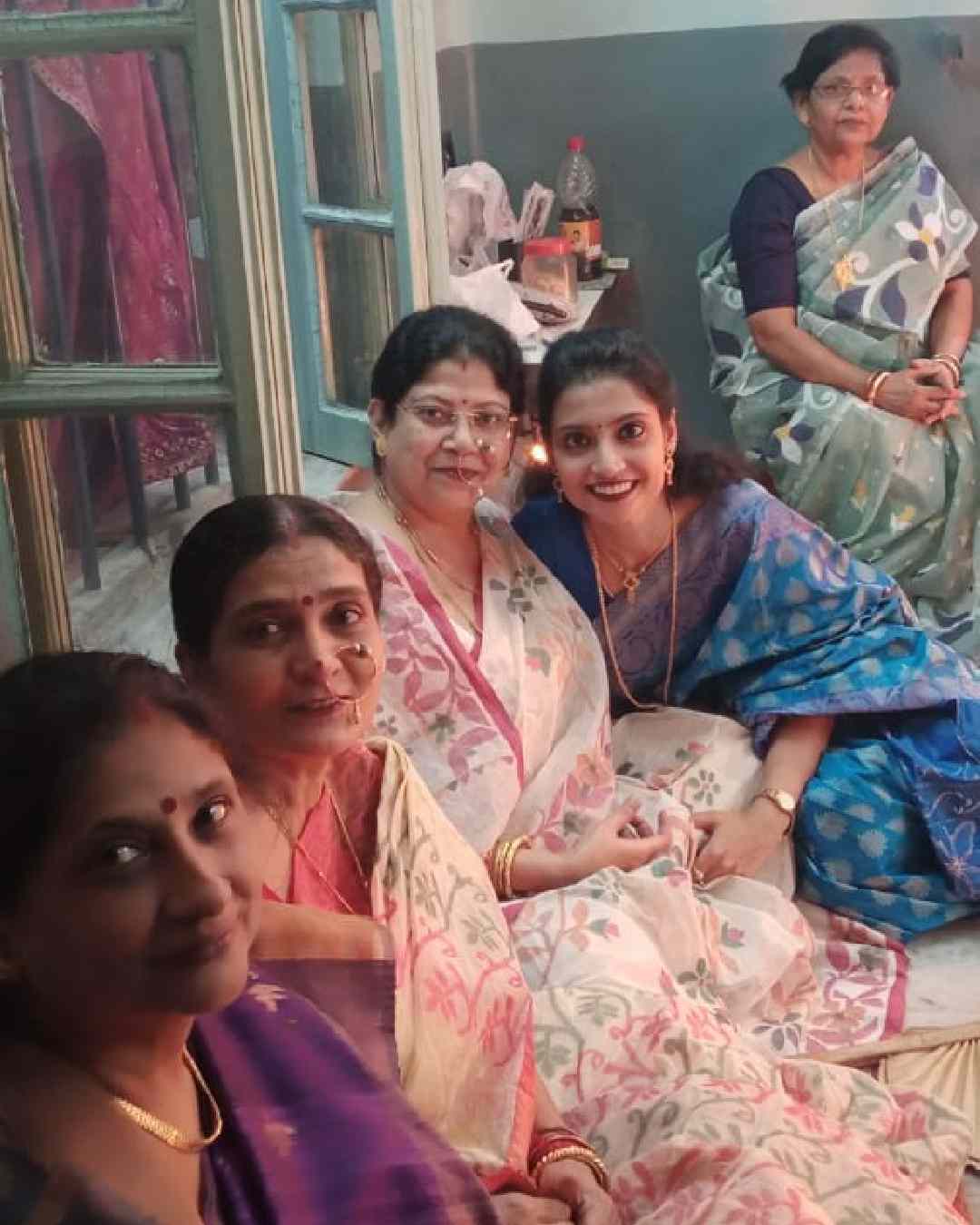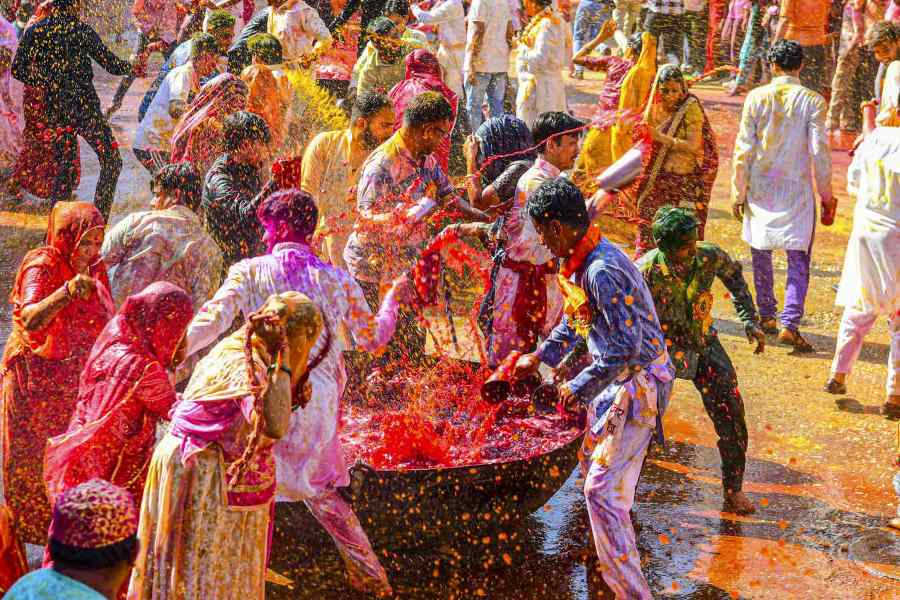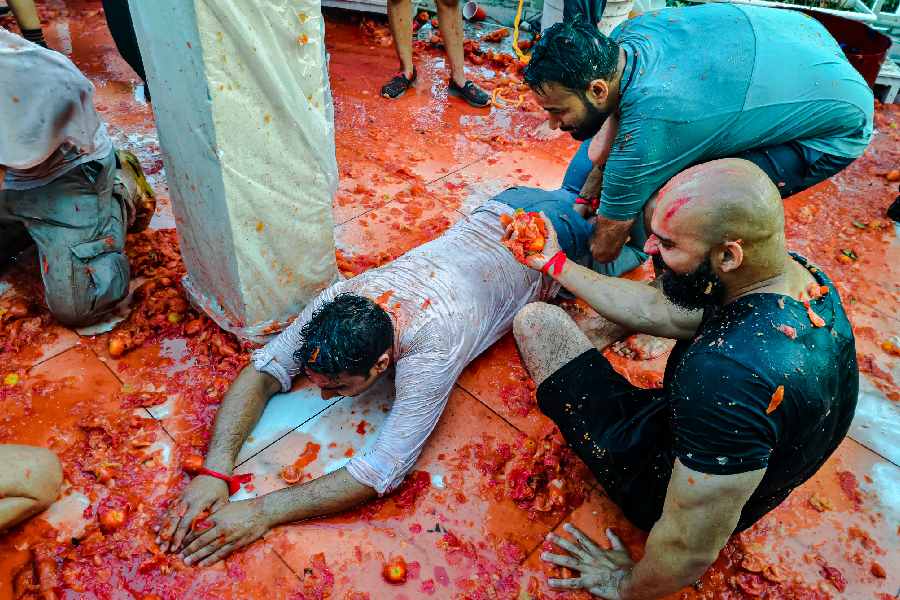At a time when extravagant pandals and public celebrations grab all the attention, the quiet traditions of bari’r pujo still hold a special place in the hearts of many Bengali families in Kolkata.
Away from the blare of loudspeakers and the cacophony of crowds, these household pujas share a more intimate message — that of devotion and family heritage. One such bari’r Kali Puja lives on in the heart of north Kolkata for almost a century now.
For the Ray bari of Bowbazar’s Panchanantala lane, the annual worship of Ma Kali is not just a festival — it’s a tradition passed through generations.
The Ray family’s puja began in the early 1930s with the worship of a ghot (a sacred pot), lovingly called Buri Maa by their ancestors.
Later in that same decade, Srimati Devi, an elderly member of the family, brought home an idol of Ma Kali, beginning the tradition that continues to this day.
Alongside the Kali idol, the original Buri Maa is still lovingly worshipped each year.
“This year the murti puja will complete 95 years... Buri Maa has been worshipped as Maa Kali for more than 100 years by our ancestors. My father’s (Debasish Ray) thakuma (grandmother) started murti puja,” said Debdatta Ray Basu, great granddaughter of Srimati Devi.
Each year, the idol is adorned with gold and diamond ornaments. The Thakur Dalan (portico and the elevated space where the goddess is placed) is washed and decorated before Ma Kali and Buri Maa are given a ceremonial bath.
She is then draped in a Banarasi sari and adorned with jewellery.
Unlike most Kali Puja celebrations that go on throughout the night, the worship of Maa Kali at Ray household concludes before midnight. “Just as we put our children to bed on time, we do the same with Kali Maa, our beloved daughter, which is why the puja doesn’t go on all night,” shared Debdatta.
Maa Kali is offered a variety of foods like liquor, mutton, rice, and fish during puja across Bengal. However, at Ray Bari, the offerings are simpler and more specific — only fruits and sweets are offered to the goddess.
What’s notable is that this practice extends beyond Kali Puja — on every Amavasya (new moon night), without exception, rice is never cooked in the Ray household, Debdatta added.
The Ray family is set to celebrate its 95th Kali Puja this year, with their Buri Maa still taking her position right next to Maa Kali’s idol.
